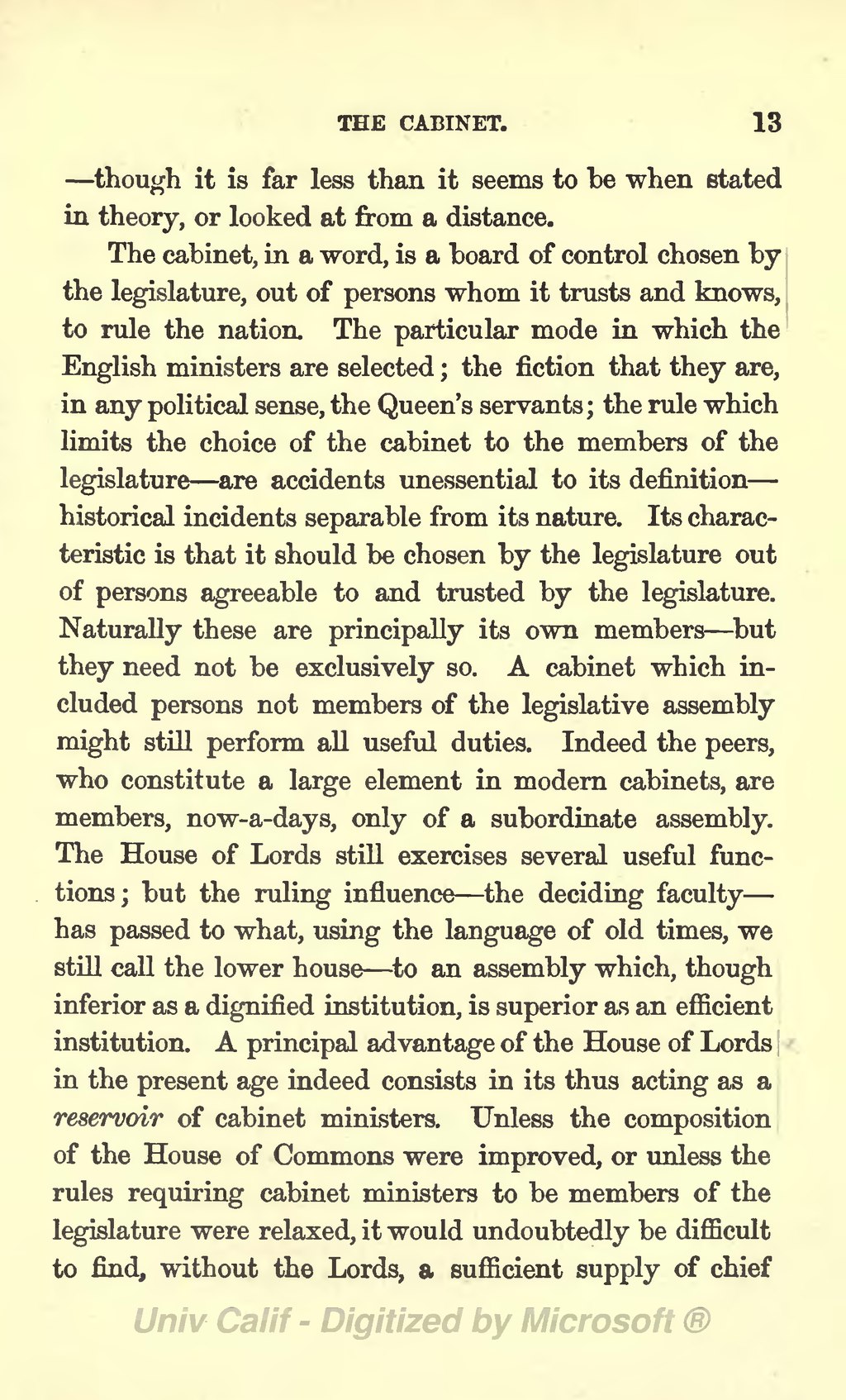—though it is far less than it seems to be when stated in theory, or looked at from a distance.
The cabinet, in a word, is a board of control chosen by the legislature, out of persons whom it trusts and knows, to rule the nation. The particular mode in which the English ministers are selected; the fiction that they are, in any political sense, the Queen's servants; the rule which limits the choice of the cabinet to the members of the legislature—are accidents unessential to its definition—historical incidents separable from its nature. Its characteristic is that it should be chosen by the legislature out of persons agreeable to and trusted by the legislature. Naturally these are principally its own members—but they need not be exclusively so. A cabinet which included persons not members of the legislative assembly might still perform all useful duties. Indeed the peers, who constitute a large element in modern cabinets, are members, now-a-days, only of a subordinate assembly. The House of Lords still exercises several useful functions; but the ruling influence—the deciding faculty—has passed to what, using the language of old times, we still call the lower house—to an assembly which, though inferior as a dignified institution, is superior as an efficient institution. A principal advantage of the House of Lords in the present age indeed consists in its thus acting as a reservoir of cabinet ministers. Unless the composition of the House of Commons were improved, or unless the rules requiring cabinet ministers to be members of the legislature were relaxed, it would undoubtedly be difficult to find, without the Lords, a sufficient supply of chief
